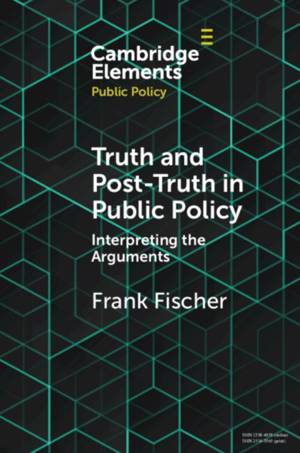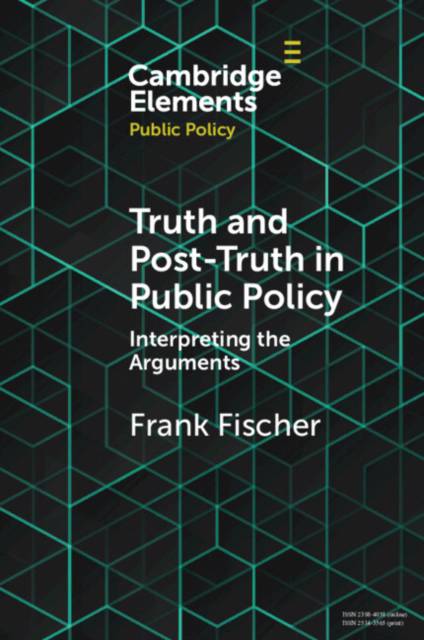
Je cadeautjes zeker op tijd in huis hebben voor de feestdagen? Kom langs in onze winkels en vind het perfecte geschenk!
- Afhalen na 1 uur in een winkel met voorraad
- Gratis thuislevering in België vanaf € 30
- Ruim aanbod met 7 miljoen producten
Je cadeautjes zeker op tijd in huis hebben voor de feestdagen? Kom langs in onze winkels en vind het perfecte geschenk!
- Afhalen na 1 uur in een winkel met voorraad
- Gratis thuislevering in België vanaf € 30
- Ruim aanbod met 7 miljoen producten
Zoeken
€ 33,45
+ 66 punten
Omschrijving
The phenomenon of post-truth poses a problem for the public policy-oriented sciences, including policy analysis. Along with "fake news," the post-truth denial of facts constitutes a major concern for numerous policy fields. Whereas a standard response is to call for more and better factual information, this Element shows that the effort to understand this phenomenon has to go beyond the emphasis on facts to include an understanding of the social meanings that get attached to facts in the political world of public policy. The challenge is thus seen to be as much about a politics of meaning as it is about epistemology. The analysis here supplements the examination of facts with an interpretive policy-analytic approach to gain a fuller understanding of post-truth. The importance of the interpretive perspective is illustrated by examining the policy arguments that have shaped policy controversies related to climate change and coronavirus denial.
Specificaties
Betrokkenen
- Auteur(s):
- Uitgeverij:
Inhoud
- Aantal bladzijden:
- 98
- Taal:
- Engels
- Reeks:
Eigenschappen
- Productcode (EAN):
- 9781108796071
- Verschijningsdatum:
- 9/12/2021
- Uitvoering:
- Paperback
- Formaat:
- Trade paperback (VS)
- Afmetingen:
- 152 mm x 229 mm
- Gewicht:
- 140 g

Alleen bij Standaard Boekhandel
+ 66 punten op je klantenkaart van Standaard Boekhandel
Beoordelingen
We publiceren alleen reviews die voldoen aan de voorwaarden voor reviews. Bekijk onze voorwaarden voor reviews.









